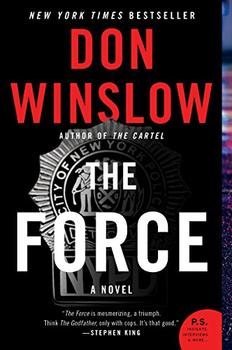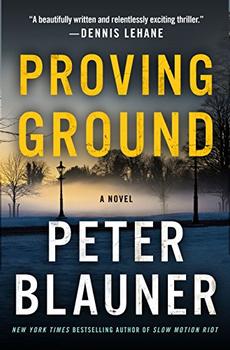Summary | Excerpt | Reviews | Beyond the book | Read-Alikes | Genres & Themes | Author Bio

Haunted by his own past, his inability to sleep, and a song, 'Blue Light Yokohama,' Iwata is at the center of a compelling, brilliantly moody, layered novel sure to be one of the most talked about debuts in 2017.
A compelling, brilliantly moody, layered debut.
Newly reinstated to the Homicide Division and transferred to a precinct in Tokyo, Inspector Iwata is facing superiors who don't want him there and is assigned a recalcitrant partner, Noriko Sakai, who'd rather work with anyone else. After the previous detective working the case killed himself, Iwata and Sakai are assigned to investigate the slaughter of an entire family, a brutal murder with no clear motive or suspect. At the crime scene, they find puzzling ritualistic details. Black smudges. A strange incense smell. And a symbol?a large black sun. Iwata doesn't know what the symbol means but he can hear it whispering to him: I am here. I am not finished.
As Iwata investigates, it becomes clear that these murders by the Black Sun Killer are not the first, nor the last attached to that symbol. As he tries to track down the history of black sun symbol, puzzle out the motive for the crime, and connect this to other murders, Iwata finds himself racing another clock - the superiors who are trying to have him removed for good.
These multiple threads – what's a police procedural without corruption polluting the scene? – and flashes of backstory weave together seamlessly. The narrative keeps the reader guessing, and eager to turn the page. There's plenty of excitement and more than one puzzle. And as the story approaches its conclusion, it grows in complexity, illustrated by the detective chief lamenting that Iwata came to town only to "un-solve one case, discredit another, and shut down half the city." The conflict, internal and external, is entirely believable, no fantasy or exaggerations that lead to wild guesses or "Oh, no! That could never happen!"..continued
Full Review
 (662 words)
(662 words)
(Reviewed by Gary Presley).
 The Rainbow Bridge spanning Tokyo Bay plays a fundamental role in Blue Light Yokohama. It becomes almost a character, as if the 800 meters (2,625 feet) spanning Tokyo's Shibaura Pier to Odaiba's waterfront is a metaphor for crossing the chasm between good (the enforcement of the law) and evil (murder).
The Rainbow Bridge spanning Tokyo Bay plays a fundamental role in Blue Light Yokohama. It becomes almost a character, as if the 800 meters (2,625 feet) spanning Tokyo's Shibaura Pier to Odaiba's waterfront is a metaphor for crossing the chasm between good (the enforcement of the law) and evil (murder).
But the double-deck Rainbow Bridge is as real as the steel used in its construction in 1993 by Kawasaki Heavy Industries. Kawasaki's roots can be traced back to 1878, when Shozo Kawasaki established Kawasaki Tsukiji Shipyard in Tokyo.
In a suspension bridge towers provide lift points for the roadway, spanning whatever chasm must be crossed. Cables hang from the towers, supporting the roadway. Historians suggest the ...

If you liked Blue Light Yokohama, try these:

by Don Winslow
Published 2018
The acclaimed, award-winning, bestselling author of The Cartel - voted one of the Best Books of the Year by more than sixty publications, including the New York Times - makes his William Morrow debut with a cinematic epic as explosive, powerful, and unforgettable as Mystic River and The Wire.

by Peter Blauner
Published 2018
A sweeping crime novel, an intricate story about the quest for redemption, and a vibrant portrait of contemporary New York City, all told in Blauner's singular voice.